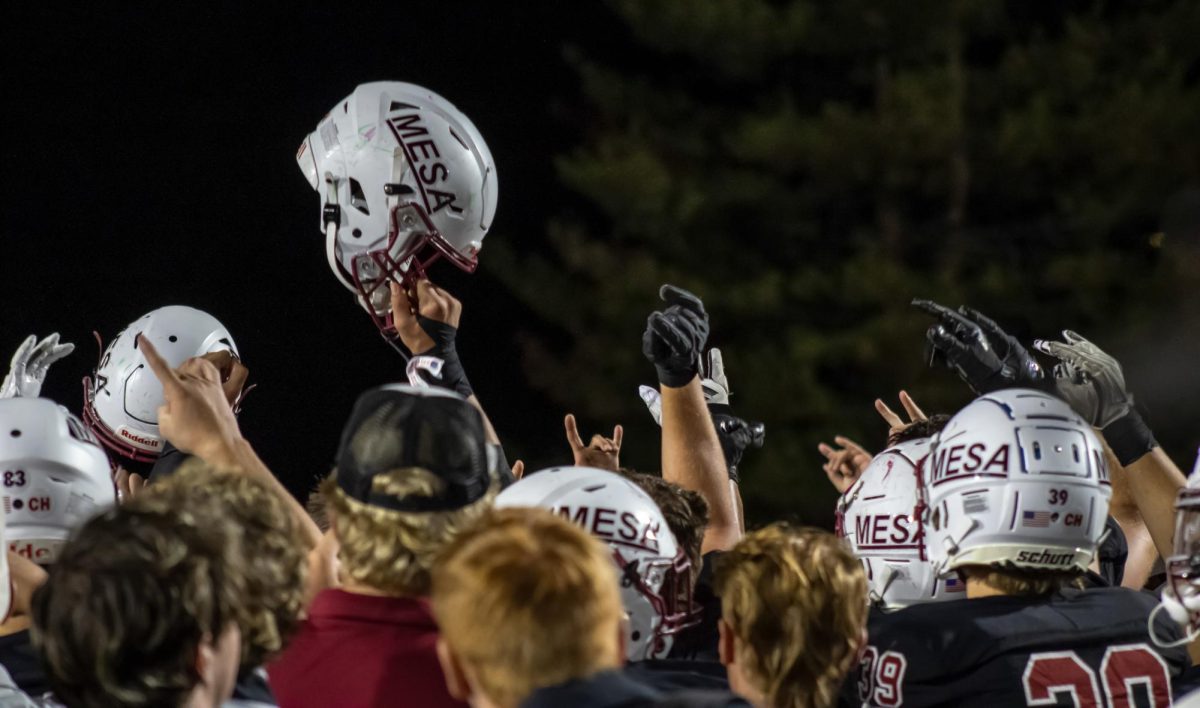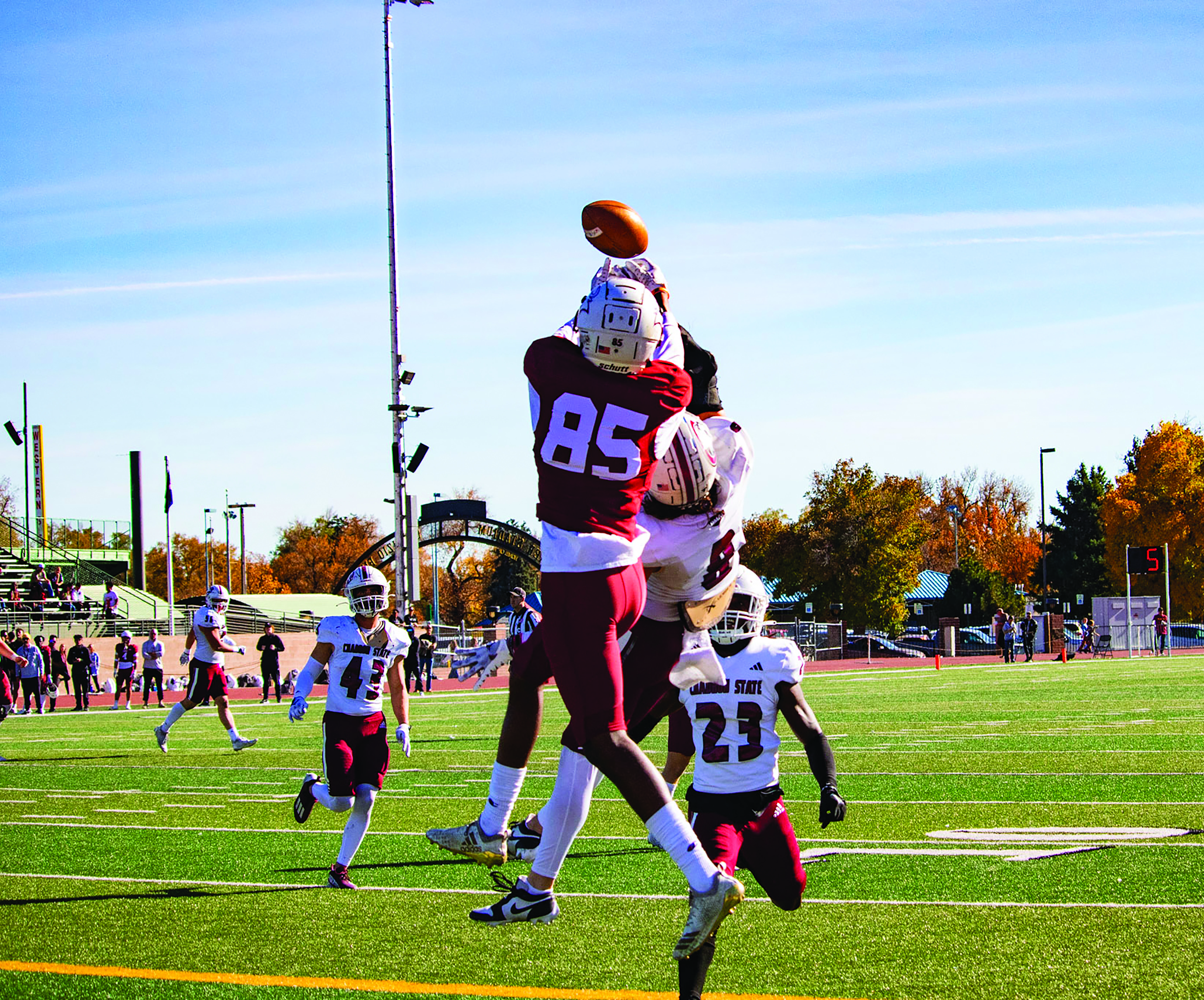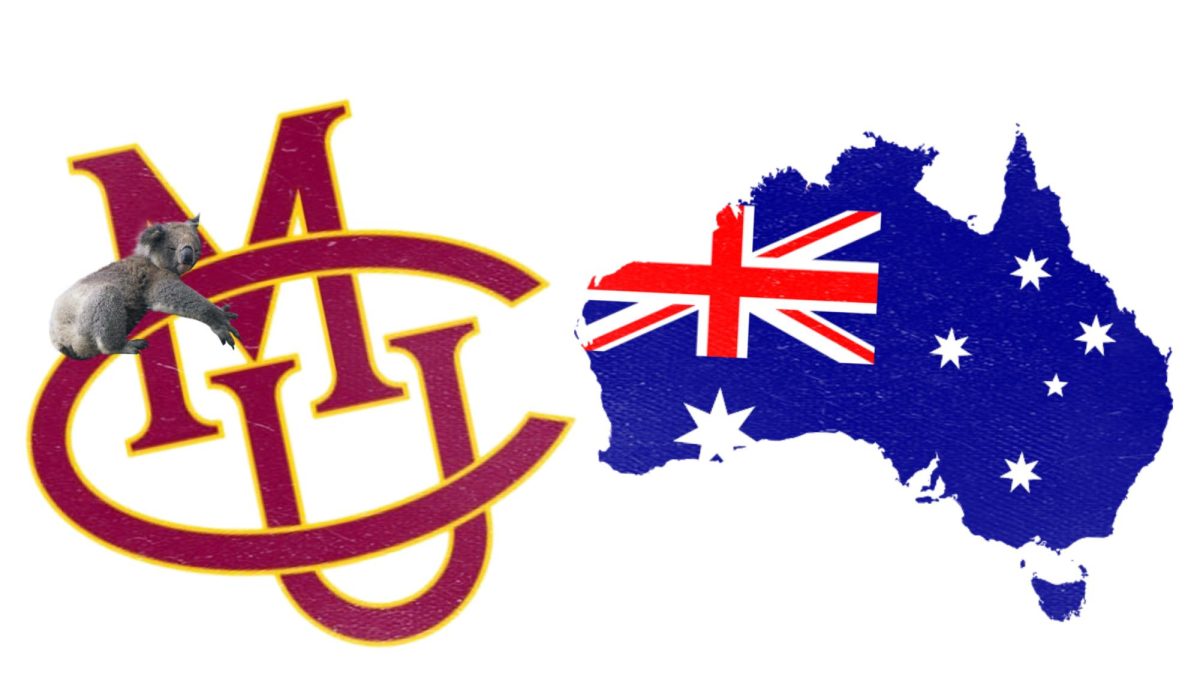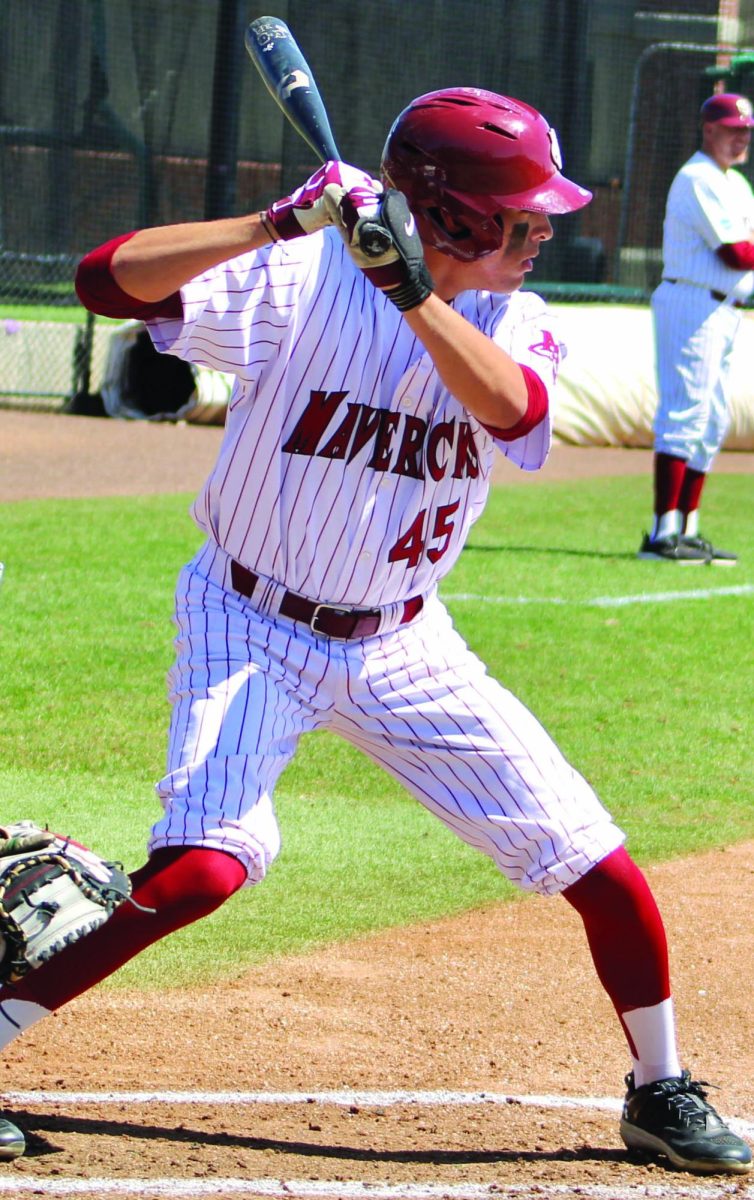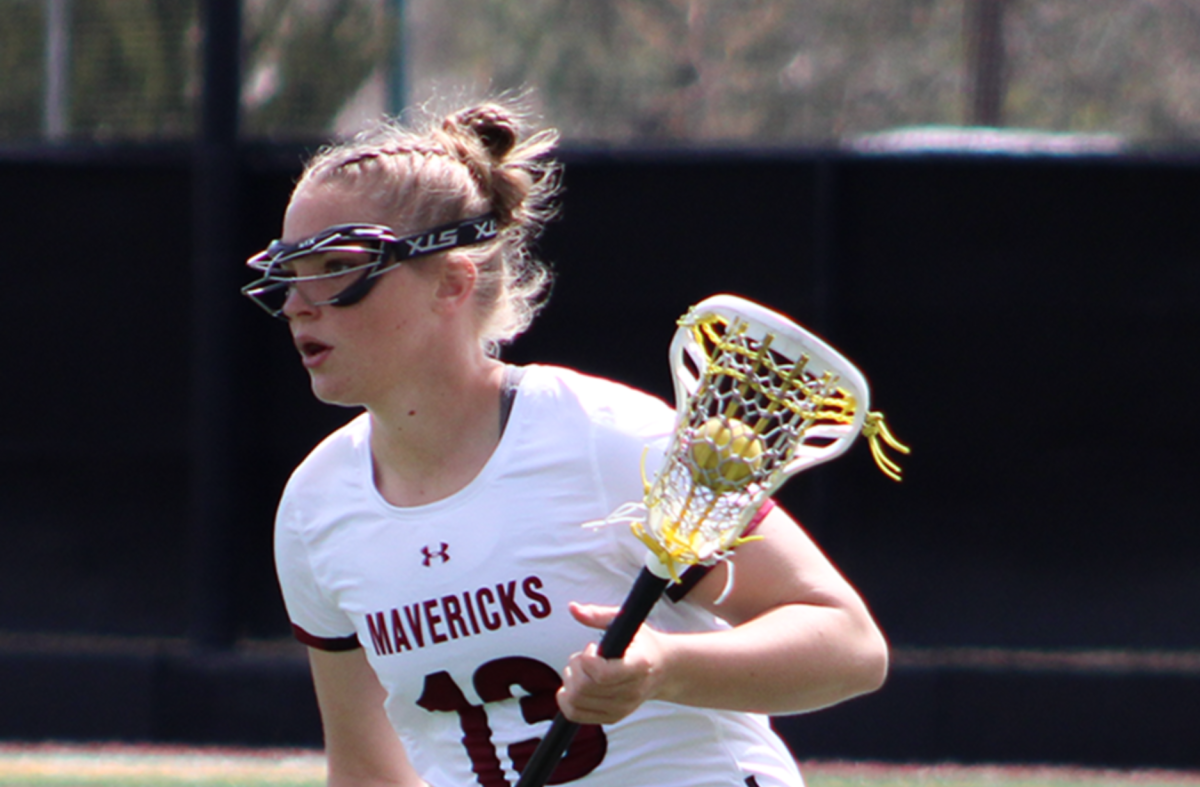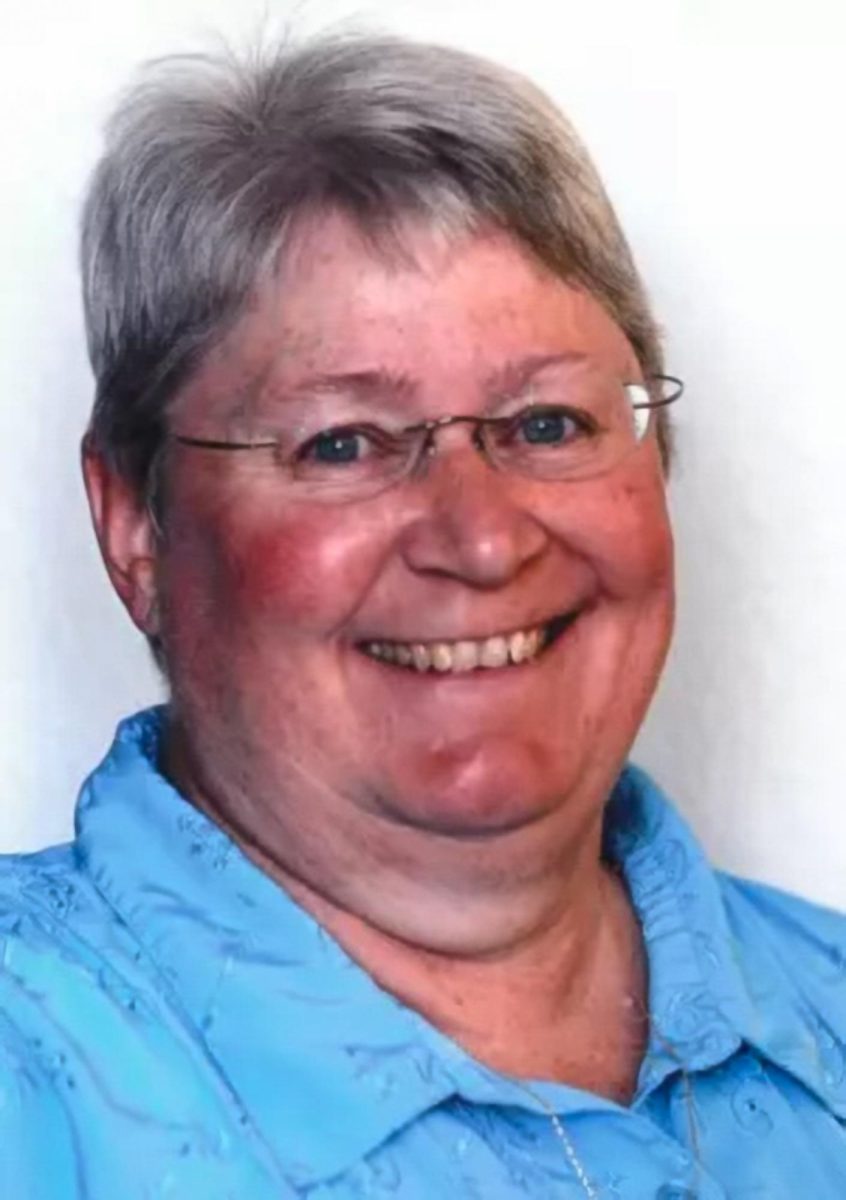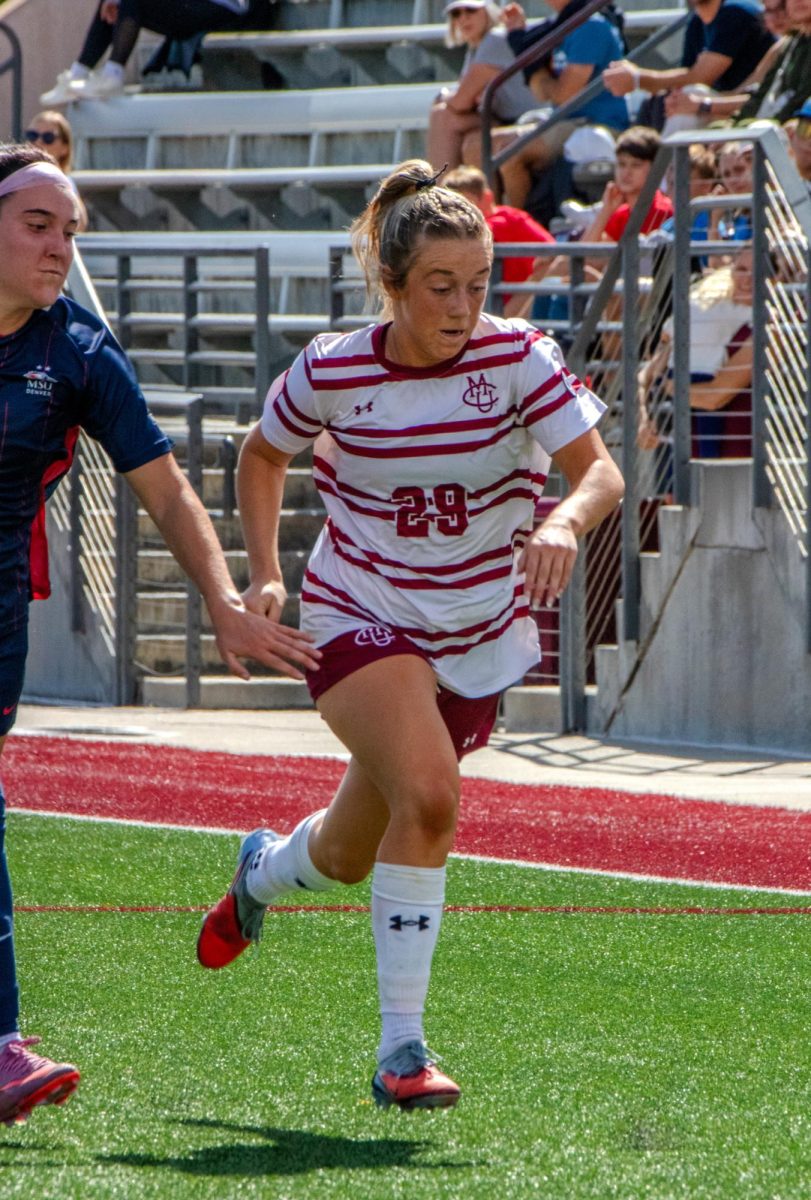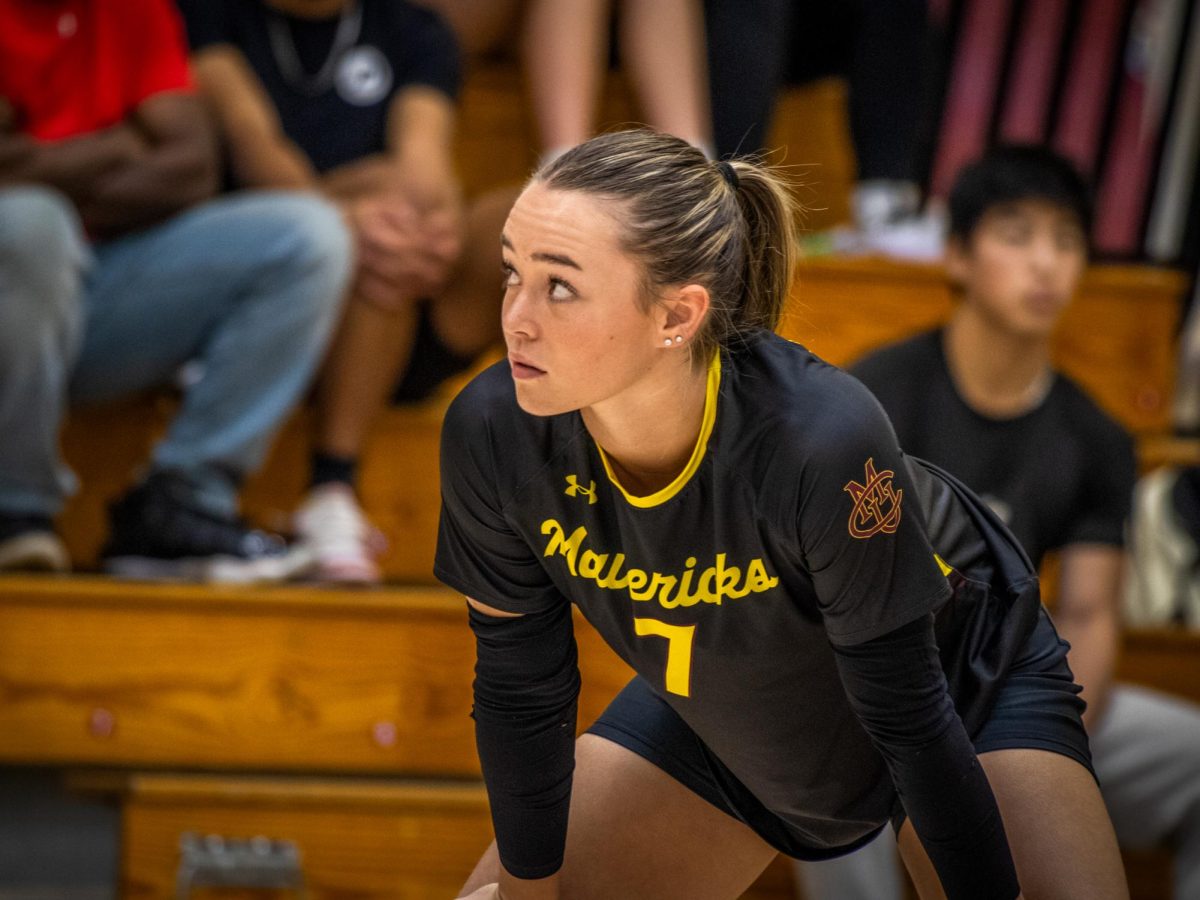The Maverick Football Program has a record of 481-356-28. The team was established in 1925 when the school was still known as Grand Junction Community College. The Mavericks became affiliated with the National Junior College Athletic Association (NJCAA) from 1938 to 1974.
The Mavericks entered their first conference from there. The Intermountain Collegiate Athletic Conference (ICAC) was later named the Empire Conference. The program played familiar teams like Boise College, Westminster College and Ricks College, now known as Brigham-Young University.
The program rotated through eight coaches in their first 13 seasons but still accumulated nine winning seasons and went 64-30-5.
In 1939 first-year Head Coach Pete Carlson led the Mavericks to a 7-1 record and their first-ever ICAC Championship. Carlson won his second conference title two years later in 1941. The Mavericks would finish 8-0 in what would be their last season before World War II created a temporary halt of the program until 1946.
Carlson is a 2010 member of the Colorado Mesa University (CMU) Hall of Honor. Carlson was the first of five straight Hall of Honor coaches during what might be the “Golden Era” of Maverick football. The team won seven conference championships and finished as a national runner-up three times.
Jay Tolman, a 1996 member of the Hall of Honor, took over coaching duties after the war. Tolman also coached track and basketball during this time. The Mavericks won their third ICAC title in 1946 and the team pumped out three winning seasons in a row before Tolman’s departure.
Luckily for the Mavericks, they were about to experience 39 more years of elite coaching. Walter “Bus” Bergman, also a member of the 1996 Hall of Honor Class who coached multiple sports programs, gave the football team some much-needed longevity. Bergman coached the Maroon and White for 16 total seasons.
His teams produced ten winning seasons. This was the program’s first NJCAA All-American and led to a 1951 Empire Conference Championship. Hugh Cook and Bill Hanks became the program’s first pair of All-Americans in 1956. The Mavericks had 11 All-Americans with Bergman coaching. Bergman finished his career with a 102-63-9 record.
Jack Perrin replaced Bergman in 1966. Perrin continued that era of success while he coached the program for 14 seasons. Perrin accumulated seven winning seasons and won four straight ICAC championships from 1967 to 1970. The 1968 Mavericks finished as the second-best junior college team in the nation.
Perrin blossomed into nine NJCAA All-Americans and six of his players were drafted to the National Football League (NFL). Most notably, linebacker Greg Westbrook was drafted to the New Orleans Saints in 1975 and won Super Bowl 15 with the Oakland Raiders.
Perrin oversaw the team’s transition from the NJCA to the National Association Intercollegiate Association (NAIA) in 1975 when Mesa College developed into a four-year institution that offered baccalaureate programs. Subsequently, the Athletic Department joined the Rocky Mountain Athletic Conference (RMAC) in 1976.
Perrin managed to keep the team competitive after the program jumped to a higher skill level. He even notched an 8-1-1 record and second-place finish in the RMAC in 1977. He was awarded RMAC Coach of the Year that season.
Bob Cortese took over for Perrin in 1980. Cortese led the program to a winning record in eight out of his ten years at Mesa College. The program accumulated six more RMAC Championships to its collection.
The Mavericks were legit national title contenders during this era and made the NAIA National Tournament six times during this stretch. Cortese and company finished as the National Runner-Up in 1982 and 1983 with their only losses those seasons being dealt in the NAIA National Championship. The 1982 team is a member of the Hall of Honor.
Cortese produced an astounding 31 NAIA All-Americans including all-time Maverick career rushing yard and touchdown leader Michael Vaughn. Vaughn led the nation in rushing yards twice and overall scoring once in 1987 and 1988 respectively. Vaughn is a 2004 member of the Hall of Honor.
Four Mavericks were drafted under Cortese including Tony Martin who played in the 1998 Super Bowl for the Atlanta Falcons and earned a Pro-Bowl nod as a San Diego Charger in 2001.
Jim Paronto became head coach in 1990 and led the team to another second-place finish and an RMAC title in just his first year. The 1990 team pumped out a program record of nine NAIA All-Americans and led the program through its second transition from NAIA to National Collegiate Athletic Association (NCAA) in 1993.
Unfortunately, Paronto could not quite replicate his early success and failed to register another winning season. He was awarded as the 1993 RMAC Coach of the Year, however, after a second-place RMAC finish.
Jay Hood was named as the next head coach in 1994. Hood did not register a winning season and was replaced in 1998. 20 Maverick players were awarded All-RMAC honors in this span.
Former Palisade High School Head Coach Joe Ramunno superseded Hood after the Mavericks recorded seven straight seasons without a winning record, the longest losing stretch in team history. Ramunno would lead the Mavericks back to their winning ways and finished with a career record of 80-77. He reached the NCAA Postseason three times in 14 seasons.
In 2000, Ramunno guided the Mavericks to a 10-3 record, an RMAC Championship, and their first Division-II (DII) playoff win, breaking a 10-year postseason drought. Quarterback Andy Coryell was named RMAC Player of the Year when he rushed for 17 touchdowns and threw for 15 more that season.
Ramunno posted another RMAC title in 2003 when the team went 10-2 and also earned another spot in the postseason.
Tight end Ben Steele was drafted by the Oakland Raiders in 2002 and became the last Maverick player to be drafted to the NFL. In 2003, offensive lineman Bryan Trautman became the first NCAA All-American in program history and also the first All-American (NAIA or NCAA) since 1991.
Ramunno’s Mavericks made the postseason again in 2007 when they finished the season with a 10-2 record and second place RMAC finish but failed to advance past the first round. The Mavericks possessed the sixth-ranked defense in the nation that season.
Ramunno would record one more winning season before resigning after the 2011 season.
Russ Martin was hired as the next Maverick head coach. He brought a new emphasis on the offense, a change from Ramunno’s defensive focus. Martin oversaw two top-ten offenses during the 2016 and 2017 seasons.
Martin’s first two seasons resulted in a 9-13 before CMU tallied four straight winning seasons and a postseason appearance. 2016 is the most recent season where the Mavericks made the playoffs.
Quarterback Eystin Salum thrived in Martin’s system and is the all-time school passing yards and touchdown leader. Salum also claims the single-season touchdown record (20). He was the 2017 RMAC Offensive Player of the Year.
Wide receiver Peter Anderson also stands atop CMU record books. Anderson completed the 2018 season as the second leading receiver in the nation with 1,344 yards. He set the single-season yardage and reception record (67). Anderson is the all-time receiving yardage leader in school history.
Martin led the team to back-to-back-to-back RMAC Championships from 2015 to 2017. Martin finished his career with a 56-33 record before the school and he mutually agreed to split ways before the 2020 season.
Tremaine Jackson stepped in and coached the program for two seasons. Jackson was also an offensive-minded coach and found great success in his only full season at the helm. The 2021 team went 8-2 and barely missed the playoffs.
Redshirt freshman quarterback Karst Hunter shined as the focal point of the offense. He set single-season records in passing yards, completion percentage and completions. He earned RMAC Offensive Freshman of the Year honors.
Jackson and CMU mutually agreed to part ways after the 2021 season. Miles Kochevar will coach the Mavericks this upcoming 2022 season.
The Maverick football team has won 12 RMAC Championships since joining the conference in 1975. They have made a National Championship 3 times and also earned numerous postseason appearances. CMU is a consistent winning program with a career record of 481-356-28.




